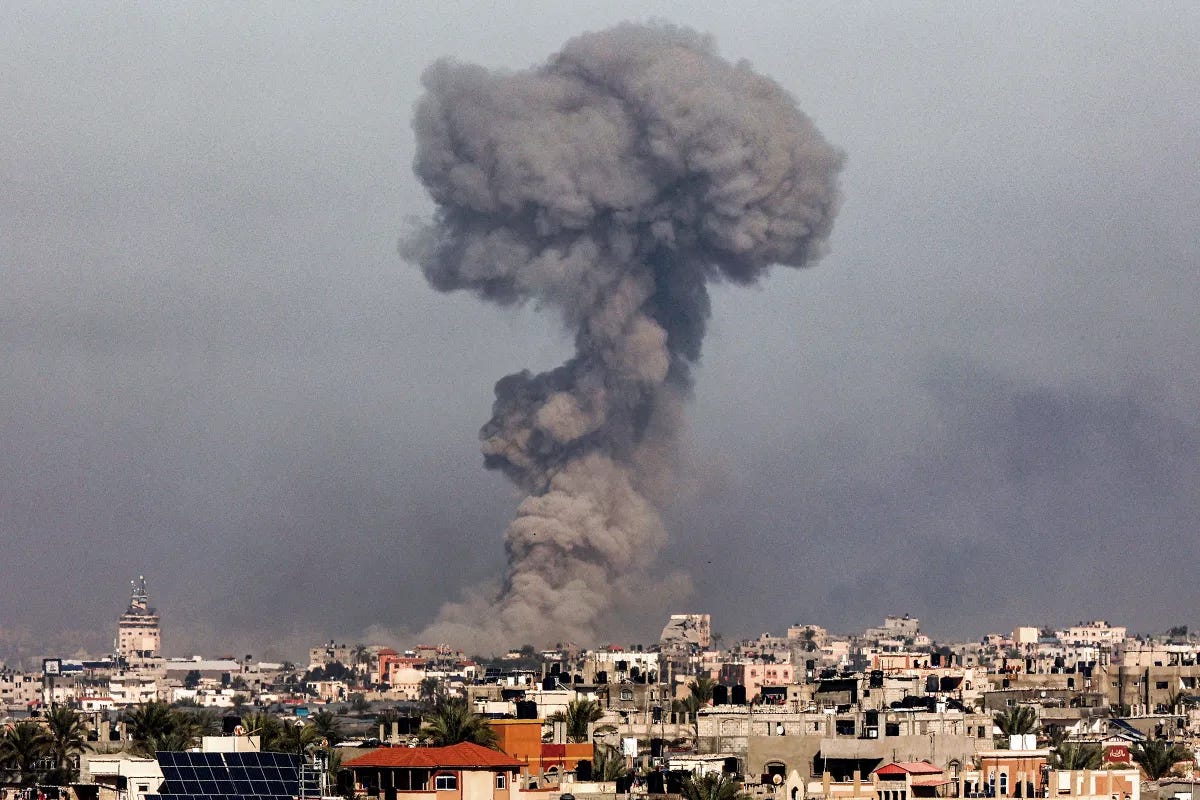Hello, and happy Friday!
As promised, I’m kicking off this correspondence—our final one of 2024—with a bit of personal news: After nearly 2.5 years and hundreds of stories, this week was my last at TIME.
Covering foreign affairs for one of the world’s most storied news magazines has been an immense privilege, and I’m so proud of all the work I’ve been able to do during my time here. From covering the death of Queen Elizabeth II mere weeks into the job to profiling nearly every U.K. leader (apologies for the oversight, Wales) to chronicling one of the most devastating wars to befall the Middle East in living memory, it’s safe to say there’s never been a dull moment. I’m grateful to be closing this chapter having made loads of core memories, great friends, and journalism that I hope will stand the test of … time. (That’s the last TIME-related pun you’ll be hearing from me, I promise.)
But new years call for new challenges, and I’m excited to share more about what’s next for me in 2025. Until then, I’ll be taking a break over the holidays to rest and recharge.
See you on the other side!
What I’ve written
My final piece for TIME looks at the implications of Israel’s use of AI in selecting bombing targets in Gaza. Experts on the laws of war, already alarmed by the emergence of AI in military settings, told me that they are concerned that its use in Gaza, as well as in Ukraine, may be establishing dangerous new norms that could become permanent if not challenged.
Experts warn that, with AI generating targets, the death toll may climb even higher. They cite “automation bias”—the presumption that information provided by AI is accurate and reliable unless proven otherwise, rather than the other way around. Abraham says his sources reported times they made just that assumption. “Yes there is a human in the loop,” says Abraham, “but if it’s coming at a late stage after decisions have been made by AI and if it is serving as a formal rubber stamp, then it’s not effective supervision.”
Keep reading: How Israel Uses AI in Gaza—And What It Might Mean for the Future of Warfare
Benjamin Netanyahu has been in the public eye for nearly half a century, but no one has ever seen him quite like this. In a newly-released documentary called The Bibi Files, the longtime Israeli leader can be seen undergoing hours of questioning by police over corruption charges that have dogged him for much of the last decade—and, as the film argues, have influenced virtually every action he has taken, from his alliance with the far-right fringe of Israeli politics to prolonging the ongoing war in Gaza.
I caught up with film director Alexis Bloom to discuss how the project came together, Netanyahu’s unsuccessful efforts to block its screening internationally (the film is banned from being shown in Israel in accordance with the country’s privacy laws), and the impact she hopes it will have.
Netanyahu wants to control the message. He is obsessed with the media, and so is his wife. There is nobody in Israel who would say otherwise. … When you see his entrance onto the world stage [as spokesman for the Israeli embassy in Washington], it’s through the media. He doesn’t campaign on a grassroots level. He campaigns using his perfect English and his baritone voice and his good looks. That is how he becomes famous. So the genesis of Netanyahu can be seen through this lens. He’s an actor. He is a master of performance, and he’s incredibly sensitive to coverage, and that’s why we felt it important to include this story about Walla. When we showed our film as a work in progress in Toronto, he immediately went to court to try and block it.
Keep reading: How Leaked Police Interviews with Benjamin Netanyahu Became ‘The Bibi Files’
What I’ve read
This moving cover story ib the Irish poet Seamus Heaney, the Troubles, death, and much more
We can’t escape it: losing the people we love and need the most. Each death has to be countenanced as a fact, squared away in the record books. But there are people so well known to us, so loved, that death is one more thing that can be turned to air.
This piece on the downfall of Bashar al-Assad
According to one high-ranking regional diplomatic source, Assad’s recent visit to Moscow was a turning point. While the Syrian leader was in Russia, forces led by the Sunni Islamist Hayat Tahrir Al-Sham (HTS) unexpectedly seized Aleppo without a fight. Upon his return to Syria, Assad is said to have expressed anger toward his army. In private meetings, Amwaj.media has learned, he lambasted his commanders as corrupt and untrustworthy—describing his army as a collection of “thieves” who cannot be relied upon. While Assad’s Russian host and counterpart, Vladimir Putin, had promised assistance, the senior regional source suggested that this support was limited to ensuring a safe exit. Given that Assad and his wife are now apparently in Russia, this promise has been kept—at least for now.
This piece on why the West shouldn’t succumb to cynical regret over Syria
For both humanitarian and geopolitical reasons, it is wrong-headed for western outsiders to regret the fall of the Assad regime. It was perhaps the most brutal government in a region full of ghastly regimes. More than 500,000 people have died in Syria since the outbreak of the civil war in 2011 — and over 90 per cent of the victims were killed by the Syrian government and its foreign allies.
This essay about the realities of being a journalist in India today: Doxed, stalked, criminally charged
Doxing is merely the latest tool deployed against me. As a Muslim in a Hindu-dominated country, with an openly Hindu nationalist government, I have been charged in five different criminal cases, accused of money laundering, tax evasion, being anti-India, spreading communal disharmony and defaming a Hindu nationalist organization. Each time the doorbell rings, I wonder if it’s the postman with the mail or a cop with a warrant. I spend more time in courtrooms than I do chasing stories.
What I’m thinking about
The people of Syria, who have endured untold horrors at the hands of the Assad regime. May their future be so much brighter than the darkness they’re leaving behind.
Until 2025,
Yasmeen





